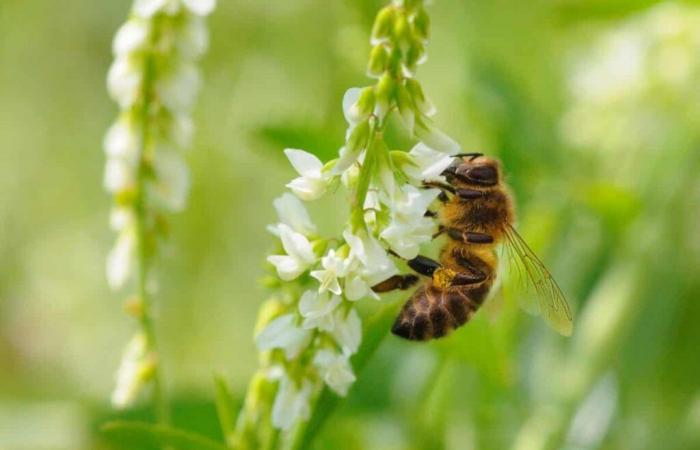Bees and other pollinators are increasingly found in cities, namely in gardens, roofs and even industrial wasteland. However, the urban environment hides a significant danger, in connection with the presence of heavy metals in soils.
Heavy metals in nectars
Published in the Ecology and Evolution journal on April 15, 2025, a study reveals that certain wild flowers appreciated by bees can absorb harmful metals. As researchers at the Ohio State University (United States) explain, there is talk of wild plants which are also sometimes found in urban space, such as white clover, liniseron or wild carrot. Now, these plants may contain materials such as lead and arsenicfrom present and past human activities.
The authors of the study were interested in the case of the city of Cleveland, the former Iron and Steel Production Center. According to their tests, the nectar of the flowers of this city contains worrying levels of toxins, In particular up to 0.5 mg/l lead. If this value seems low at first, it turns out that bees absorb and accumulate these poisons without being able to eliminate them effectively.
-Thus, the food of bee on a daily basis becomes problematic. Indeed, by dint of gathering the flowers in question, these insects gradually increase the quantity of heavy metals being in their bodies And unfortunately, the dose can eventually become lethal.
Test the floors before cultivating
In addition to a possible death in the long term, the consequences on bees There are many: alteration of their flight capacity, delays with regard to reproduction or, problems in memory and learning. For the authors of the study, it is not a question of constraining the beekeepers to plant flowers in town and to raise bees there. On the other hand, it is more a question of raising awareness of these professionals with regard to the quality of the soil. It is therefore advised to carry out heavy metal detection tests Before cultivating.
More generally, this mainly urban problem could also contribute to the fall of bee populations. Let us remember all the same that bees – as well as all pollinating insects – are essential for the reproduction of many plant species. The disappearance of only bees could cause a significant decrease in the production of fruit (23 %) and vegetables (from 16 to 23 %). Thus, it is important to emphasize that protecting pollinating insects now is global food security.






